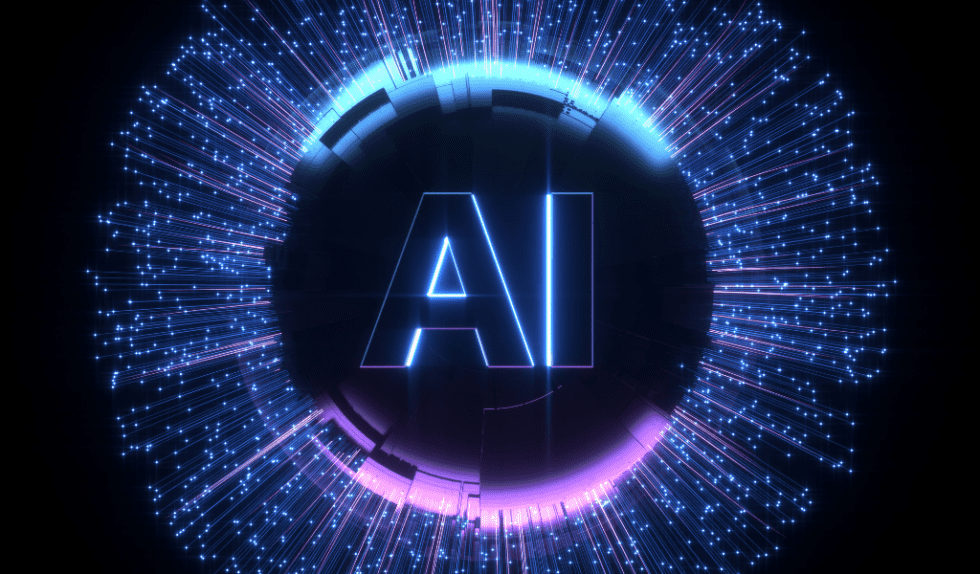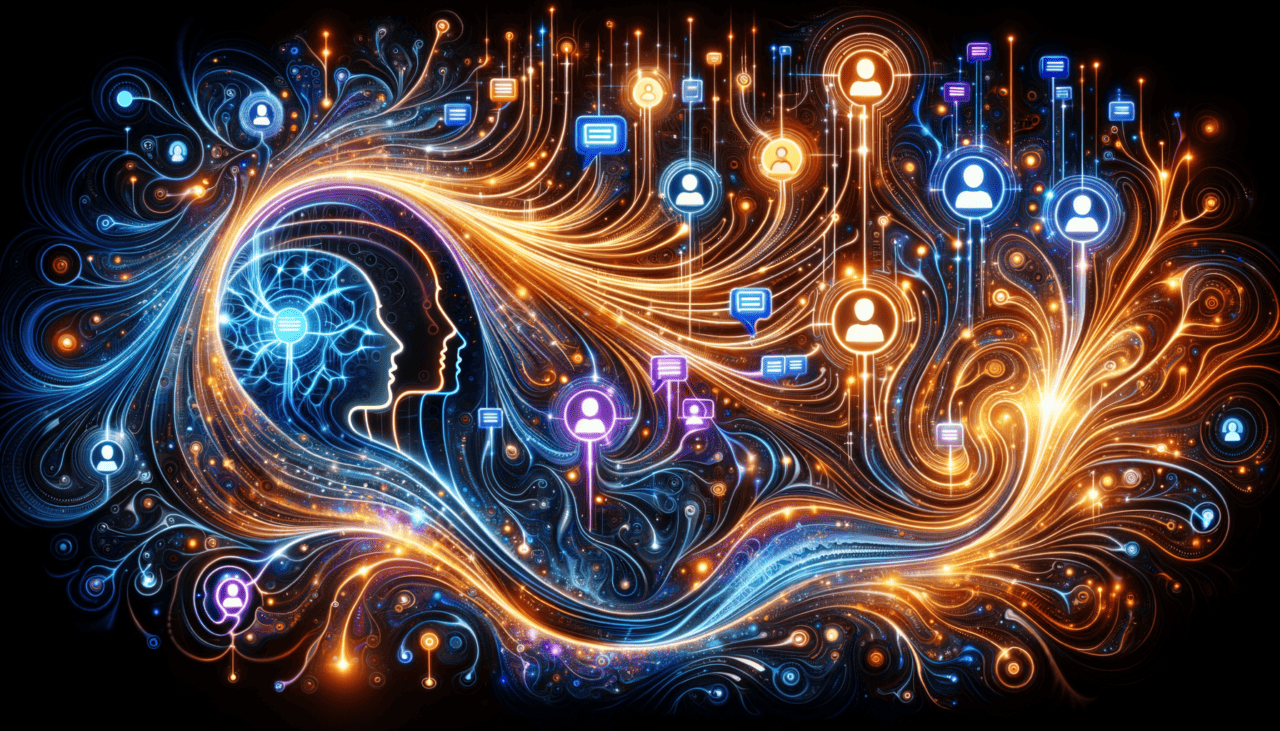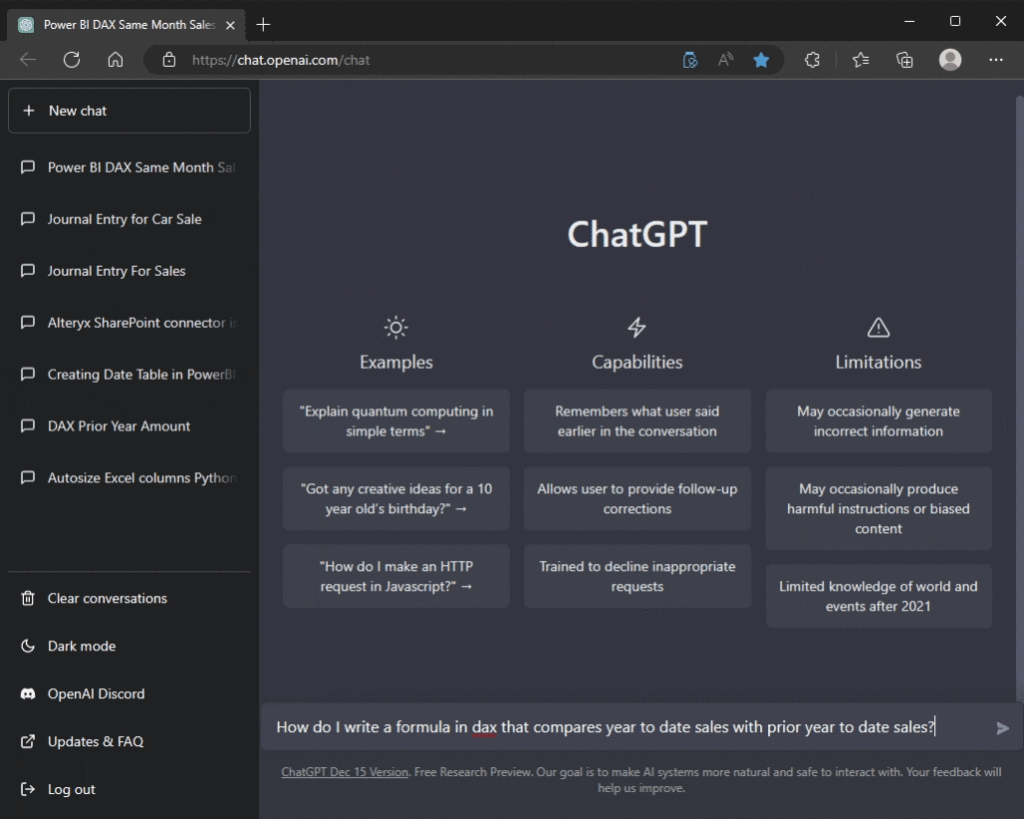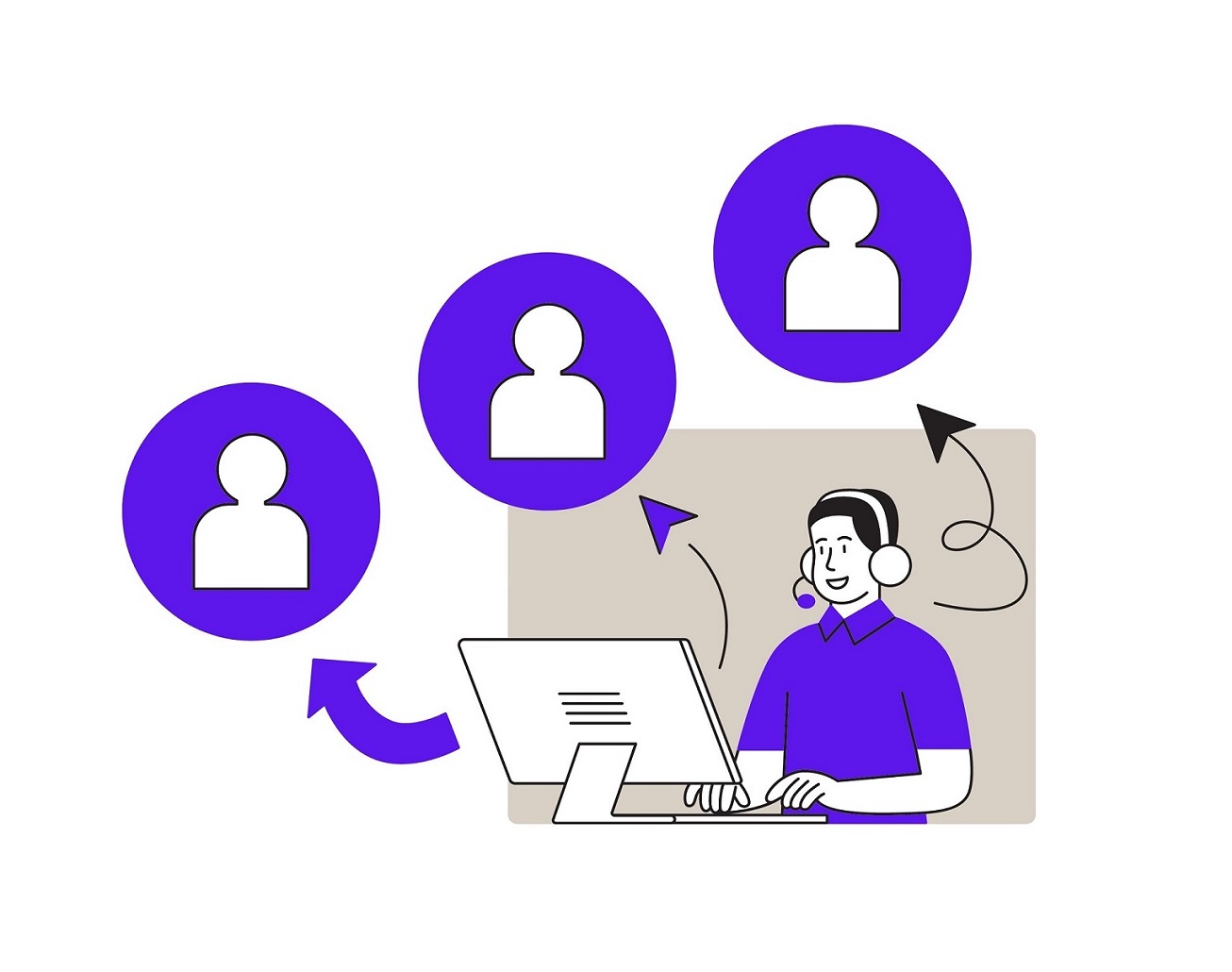“The Rise of the Machines in Customer Service: How ChatGPT is Reshaping Customer Interactions
Artikel Terkait The Rise of the Machines in Customer Service: How ChatGPT is Reshaping Customer Interactions
- Unleashing The Power Of AI: Automating Writing Tasks With ChatGPT
- ChatGPT: The AI Powerhouse Reshaping Content Creation Across Platforms
- Unleashing The Power Of ChatGPT: A Comprehensive Guide To Developing Killer Marketing Strategies
- Unleashing The Power Of ChatGPT For Writing Compelling Course Descriptions: A Guide For Educators
- Level Up Your Online Business With The Power Of ChatGPT AI: A Comprehensive Guide
Table of Content
- 1 Artikel Terkait The Rise of the Machines in Customer Service: How ChatGPT is Reshaping Customer Interactions
- 2 Video tentang The Rise of the Machines in Customer Service: How ChatGPT is Reshaping Customer Interactions
- 3 The Rise of the Machines in Customer Service: How ChatGPT is Reshaping Customer Interactions
Video tentang The Rise of the Machines in Customer Service: How ChatGPT is Reshaping Customer Interactions
The Rise of the Machines in Customer Service: How ChatGPT is Reshaping Customer Interactions

The customer service landscape is undergoing a seismic shift, driven by the rapid advancements in artificial intelligence (AI). At the forefront of this revolution stands ChatGPT, a large language model developed by OpenAI. This powerful AI is transforming how businesses interact with their customers, offering unprecedented scalability, availability, and personalization. But how exactly is ChatGPT being deployed in customer service, and what are the benefits and challenges of this technological leap?
Understanding ChatGPT and its Capabilities for Customer Service
ChatGPT is not just another chatbot. It leverages deep learning algorithms to understand and generate human-like text. This allows it to engage in natural, conversational interactions, providing accurate and relevant information to customers. Unlike traditional chatbots that rely on pre-programmed scripts and keyword recognition, ChatGPT can understand the nuances of language, interpret complex queries, and adapt its responses based on the context of the conversation.
Here’s a breakdown of ChatGPT’s key capabilities that make it a potent tool for customer service:
- Natural Language Understanding (NLU): ChatGPT excels at understanding the intent behind customer inquiries, even when expressed using colloquialisms, slang, or grammatical errors. This allows it to accurately identify the customer’s problem and provide relevant solutions.
- Natural Language Generation (NLG): It can generate human-like responses that are coherent, informative, and engaging. This creates a more natural and satisfying customer experience compared to interacting with rigid, robotic chatbots.
- Contextual Awareness: ChatGPT remembers previous interactions within a conversation, allowing it to maintain context and provide personalized assistance. This is crucial for resolving complex issues that require multiple steps.
- Multilingual Support: ChatGPT can be trained to communicate in multiple languages, enabling businesses to provide customer support to a global audience.
- 24/7 Availability: Unlike human agents, ChatGPT is available around the clock, ensuring that customers can get assistance whenever they need it.
- Scalability: ChatGPT can handle a large volume of customer inquiries simultaneously, without experiencing delays or compromising on quality.
- Personalization: By analyzing customer data, ChatGPT can personalize interactions, offering tailored recommendations, promotions, and solutions.

Applications of ChatGPT in Customer Service
ChatGPT is being integrated into various aspects of customer service, streamlining processes and enhancing the overall customer experience. Here are some key applications:

- Answering Frequently Asked Questions (FAQs): ChatGPT can be trained on a knowledge base of FAQs to provide instant answers to common customer inquiries. This reduces the workload on human agents and allows them to focus on more complex issues.
- Troubleshooting Technical Issues: ChatGPT can guide customers through troubleshooting steps, helping them resolve technical problems on their own. This can significantly reduce the number of support tickets and improve customer satisfaction.
- Providing Product Information: ChatGPT can provide detailed information about products and services, including features, specifications, pricing, and availability. This helps customers make informed purchasing decisions.
- Processing Orders and Returns: ChatGPT can assist customers with placing orders, tracking shipments, and processing returns. This streamlines the order fulfillment process and improves customer convenience.
- Scheduling Appointments: ChatGPT can be used to schedule appointments for various services, such as consultations, repairs, and installations. This eliminates the need for customers to call or email to book appointments.
- Generating Leads: ChatGPT can engage website visitors in conversations, qualify leads, and direct them to the appropriate sales representatives. This helps businesses increase their sales and marketing effectiveness.
- Providing Proactive Support: ChatGPT can analyze customer behavior and proactively offer assistance when needed. For example, it can detect when a customer is struggling to complete a task on a website and offer helpful tips or guidance.
- Customer Feedback Collection: ChatGPT can be used to collect customer feedback through surveys and questionnaires. This provides valuable insights into customer satisfaction and helps businesses identify areas for improvement.
- Live Agent Handoff: When ChatGPT cannot resolve a customer’s issue, it can seamlessly transfer the conversation to a human agent, providing the agent with all the relevant context. This ensures that customers receive the best possible support, regardless of the complexity of their issue.

Benefits of Using ChatGPT for Customer Service
The adoption of ChatGPT in customer service offers a multitude of benefits for businesses:
- Improved Customer Satisfaction: By providing fast, accurate, and personalized support, ChatGPT can significantly improve customer satisfaction.
- Reduced Costs: By automating routine tasks and reducing the workload on human agents, ChatGPT can help businesses reduce their customer service costs.
- Increased Efficiency: ChatGPT can handle a large volume of inquiries simultaneously, allowing businesses to respond to customer requests more quickly and efficiently.
- Enhanced Scalability: ChatGPT can easily scale to meet the changing demands of a business, ensuring that customers always receive timely support.
- Data-Driven Insights: ChatGPT can collect and analyze customer data, providing valuable insights into customer behavior, preferences, and pain points.
- Improved Agent Productivity: By handling routine tasks, ChatGPT frees up human agents to focus on more complex and challenging issues, improving their productivity and job satisfaction.
- Competitive Advantage: Businesses that adopt ChatGPT for customer service can gain a competitive advantage by providing a superior customer experience.
Challenges and Considerations
While ChatGPT offers significant advantages, there are also challenges and considerations to keep in mind:
- Accuracy and Reliability: While ChatGPT is highly accurate, it is not infallible. It can sometimes generate incorrect or misleading information, especially when dealing with complex or ambiguous queries.
- Bias and Fairness: ChatGPT can be susceptible to biases present in the data it was trained on. This can lead to unfair or discriminatory outcomes.
- Security and Privacy: It is crucial to protect customer data when using ChatGPT for customer service. Businesses need to implement appropriate security measures and comply with privacy regulations.
- Lack of Empathy: While ChatGPT can simulate human-like conversation, it lacks genuine empathy. This can be a disadvantage when dealing with emotionally charged situations.
- Implementation and Training: Implementing and training ChatGPT requires technical expertise and resources. Businesses need to invest in the necessary infrastructure and training to ensure successful deployment.
- Maintaining a Human Touch: While automation is beneficial, it’s important to maintain a human touch in customer service. Over-reliance on AI can lead to a depersonalized and unsatisfying customer experience. A balanced approach, where AI augments human agents, is often the most effective.
- Keeping Up with Updates: The field of AI is constantly evolving. Businesses need to stay up-to-date with the latest advancements in ChatGPT and other AI technologies to ensure they are using the best tools and practices.
Best Practices for Implementing ChatGPT in Customer Service
To maximize the benefits of ChatGPT and mitigate the challenges, businesses should follow these best practices:
- Define Clear Goals and Objectives: Before implementing ChatGPT, clearly define the goals and objectives you want to achieve. This will help you choose the right use cases and measure the success of your implementation.
- Train ChatGPT on High-Quality Data: The quality of ChatGPT’s responses depends on the quality of the data it was trained on. Ensure that you train it on accurate, comprehensive, and up-to-date information.
- Monitor and Evaluate Performance: Continuously monitor and evaluate the performance of ChatGPT to identify areas for improvement. Track key metrics such as customer satisfaction, resolution time, and cost savings.
- Provide Human Oversight: Always provide human oversight to ensure that ChatGPT is providing accurate and appropriate responses. Human agents should be available to handle complex or sensitive issues that ChatGPT cannot resolve.
- Be Transparent with Customers: Let customers know when they are interacting with ChatGPT. This will help manage their expectations and build trust.
- Prioritize Security and Privacy: Implement robust security measures to protect customer data and comply with privacy regulations.
- Integrate with Existing Systems: Integrate ChatGPT with your existing CRM, help desk, and other systems to create a seamless customer experience.
- Continuously Improve and Update: Continuously improve and update ChatGPT based on customer feedback and performance data.
The Future of ChatGPT in Customer Service
The future of ChatGPT in customer service is bright. As AI technology continues to evolve, ChatGPT will become even more sophisticated and capable. We can expect to see:
- More Personalized Interactions: ChatGPT will be able to personalize interactions even further by leveraging data from multiple sources, such as social media, purchase history, and browsing behavior.
- More Proactive Support: ChatGPT will be able to anticipate customer needs and provide proactive support before they even ask for it.
- More Seamless Integration: ChatGPT will be seamlessly integrated into all aspects of the customer journey, from initial contact to post-purchase support.
- More Advanced AI Capabilities: ChatGPT will incorporate more advanced AI capabilities, such as sentiment analysis and emotion recognition, to better understand and respond to customer needs.
- Wider Adoption Across Industries: ChatGPT will be adopted by a wider range of industries, from healthcare to finance to education.
FAQ
Q: Is ChatGPT going to replace human customer service agents?
- A: It’s unlikely that ChatGPT will completely replace human agents. Instead, it’s more likely to augment their capabilities, handling routine tasks and freeing them up to focus on more complex and challenging issues. The best customer service strategies often involve a blend of AI and human interaction.
Q: How accurate is ChatGPT in providing customer service responses?
- A: ChatGPT’s accuracy is generally high, but it’s not perfect. Its accuracy depends on the quality of the data it was trained on and the complexity of the query. Regular monitoring and human oversight are essential to ensure accuracy and prevent errors.
Q: How can I ensure that ChatGPT provides ethical and unbiased customer service?
- A: To ensure ethical and unbiased responses, it’s crucial to train ChatGPT on diverse and representative data. Regularly audit its responses for bias and implement mechanisms to correct any biases that are detected. Transparency and explainability are also important.
Q: What are the security implications of using ChatGPT for customer service?
- A: Using ChatGPT involves handling sensitive customer data, so security is paramount. Implement strong security measures to protect data from unauthorized access and comply with relevant privacy regulations like GDPR and CCPA. Data encryption and access control are essential.
Q: How much does it cost to implement ChatGPT for customer service?
- A: The cost of implementing ChatGPT can vary depending on the complexity of the implementation, the size of the business, and the specific features and functionalities required. Factors to consider include the cost of the ChatGPT platform, the cost of training data, and the cost of integration with existing systems.
Q: What skills are needed to manage and maintain ChatGPT in a customer service environment?
- A: Skills required include natural language processing (NLP), data analysis, machine learning, and customer service expertise. A team with expertise in these areas is crucial for successful implementation and ongoing management.
Q: How can I measure the success of my ChatGPT implementation in customer service?
- A: Key metrics to track include customer satisfaction scores (CSAT), net promoter score (NPS), resolution time, cost savings, and agent productivity. Regularly analyze these metrics to identify areas for improvement and optimize your ChatGPT implementation.
Conclusion
ChatGPT is revolutionizing the customer service industry, offering businesses a powerful tool to improve customer satisfaction, reduce costs, and increase efficiency. By understanding its capabilities, challenges, and best practices, businesses can harness the power of ChatGPT to create a superior customer experience and gain a competitive advantage. While challenges exist, the potential benefits of leveraging ChatGPT in customer service are undeniable. As AI technology continues to advance, ChatGPT will undoubtedly play an increasingly important role in shaping the future of customer interactions. The key is to implement it thoughtfully, ethically, and strategically, always prioritizing the needs and expectations of the customer.
